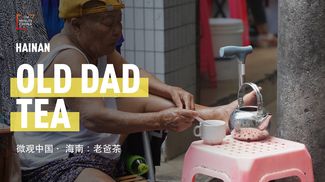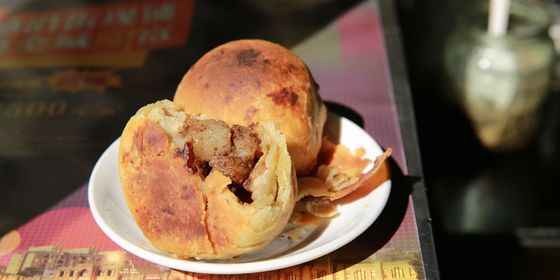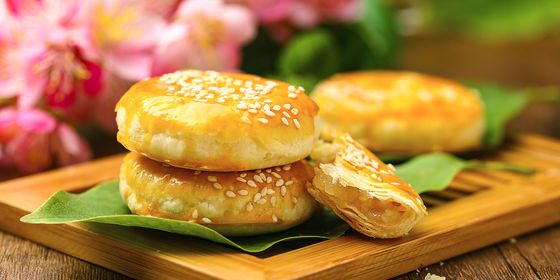An imperial dessert helps foodies beat the summer heat
“Eat hot tofu slowly (心急吃不了热豆腐),” a Chinese saying warns of the danger of impatience. Hot tofu takes time to cool down, and even when it stops steaming on the outside, the inside might still burn your tongue. But one “tofu” dish—almond tofu (杏仁豆腐)—is enjoyed cold, and is a popular refreshing dessert for summer.
Don’t be fooled by the word “tofu” in its name: This chilled dessert has little to do with soy bean curds. What it has in common with tofu is the processing and appearance—soft, pale, jiggly, and vulnerable. Yet almond tofu is even more refreshing and smooth than the regular type, melting at the tip of your tongue and soothing your senses with its subtle sweetness and nutty fragrance.
The creation of almond tofu is commonly associated with Dong Feng (董奉), one of the most famous “miracle-working physicians (神医)” at the end of the Eastern Han dynasty (25 – 220). Instead of money, Dong asked his cured patients to pay him by planting almond trees on the mountain behind his village in Houguan county (present-day Fuzhou of Fujian province): one for a mild ailment, and up to five trees for treating a severe disease. As the trees multiplied into a forest over the years, Dong welcomed people to harvest the fruits in exchange for their grains, which he then donated to the poor. The story goes that locals then created almond tofu with the kernel from the fruit.
The tale gave rise to the idiom 杏林春暖 (“an almond forest flourishes in the spring”), used to praise medical professionals ever since, though the origin of the dessert remains unverified. In any case, the dish later made it into high society, adding a refreshing touch to the imperial Manchu-Han Banquet of the Qing dynasty (1616 – 1911) and allegedly winning the favor of big shots such as Empress Dowager Cixi.
Bean Curd Without Beans is a story from our issue, “Public Affairs.” To read the entire issue, become a subscriber and receive the full magazine. Alternatively, you can purchase the digital version from the App Store.













